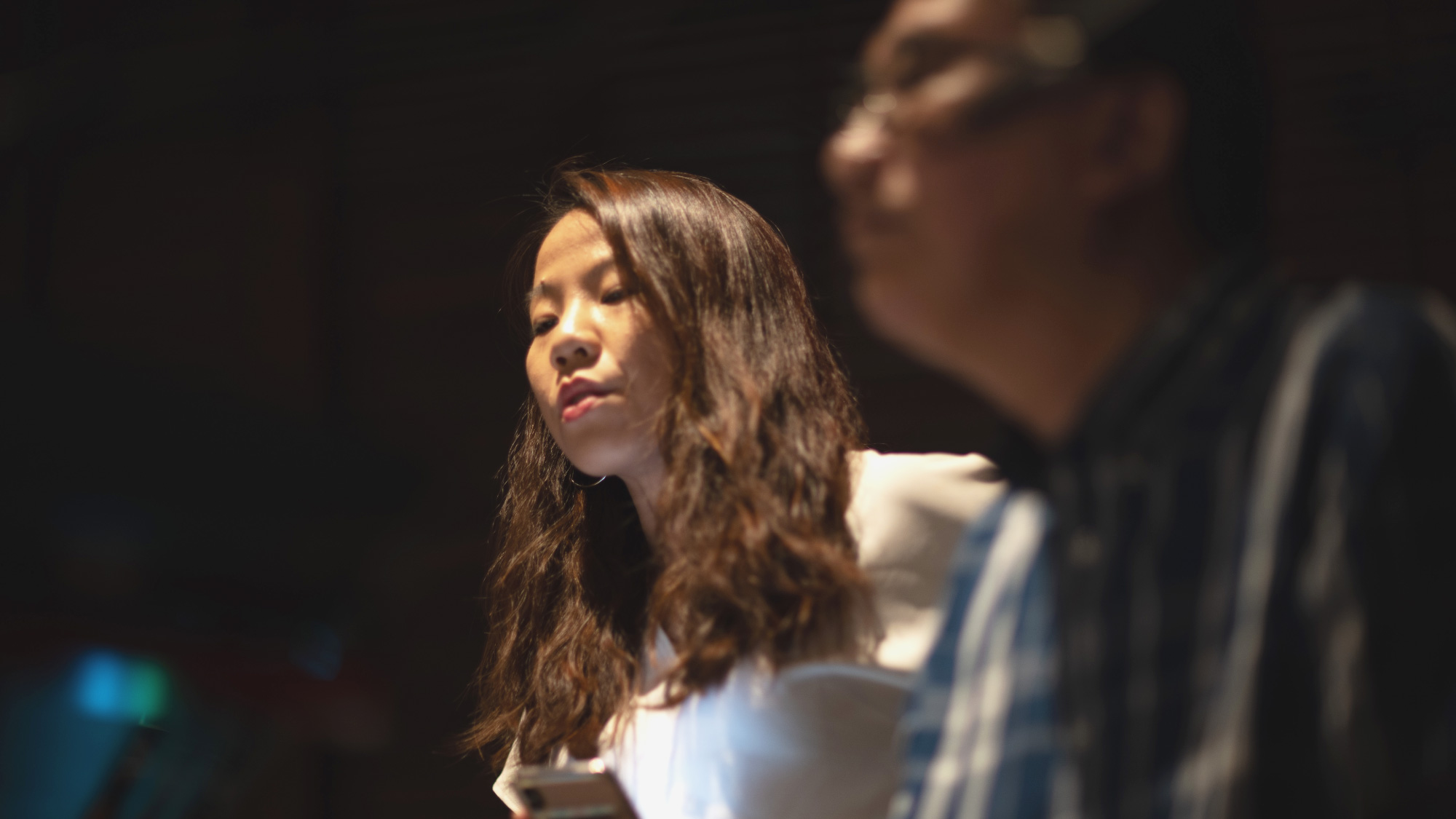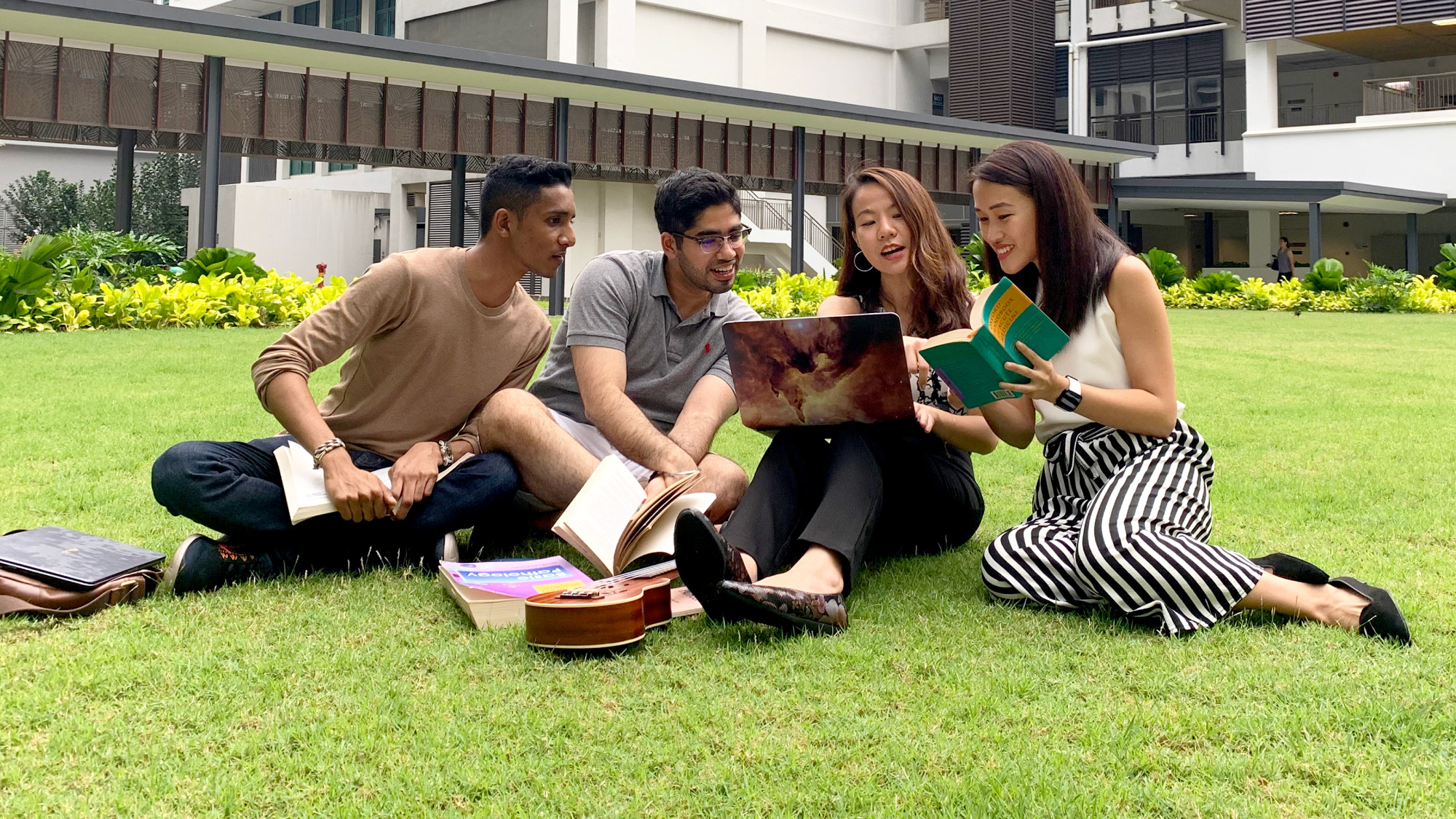Music Helps Her Be A Better Doctor
Out of pain and heartbreak come songs of hope and renewal.
In August 2014, when her 78-year-old maternal grandfather suffered heart failure and was rushed to the National University Hospital’s Emergency Department, then-Phase 1 Medicine student Stephanie Yeap felt compelled to pen a song about the entire experience.
“That moment was very poignant and very painful for me, so I wrote it into a song called ‘Emergency Room’. I detailed how I perceived my grandfather as a child, and how I looked up to him so much, and how sad I was to bid him goodbye at the Emergency Department,” she said.
The following year, Stephanie took part in a student project to raise public awareness on palliative care. She was responsible for the project’s publicity video, and proposed a song to accompany the video.
“I was quite inspired by the whole movement and the many whimsical answers people wrote about what they wanted to do before they died, on the ‘Before I Die’ boards put up in the public areas. Some of these responses include wanting to see Leonardo DiCaprio win an Oscar, finding true love and getting married, and travelling with loved ones,” said Stephanie, who spent close to a month composing both the song and the accompanying lyrics.
“They were very whimsical and silly compared to those written by those who were terminally ill in the hospices. A lot of their wishes were to spend time with family and friends before they passed on. A lot of their messages were also telling people to treasure what they have on earth now. I was very inspired by the contrasting messages, which is why the song I composed was very whimsical at the start, though it ended thoughtfully.”
To encourage her schoolmates to persevere in their studies and be compassionate and socially responsible doctors, the Medical Society Arts and Cultural Directorate member also co-wrote and performed a song titled, “Ours to Build”. The song, which was performed at the Freshman Orientation Camp in 2017, as well as the White Coat Ceremony in 2018, was very well-received by the audience.
Beginnings
Her love for music and song writing began in childhood.
She learnt classical piano at four and enjoyed writing poems in primary school.
“I didn’t have a lot of pop music influences, because my parents made me listen to classical music most of the time. So when I was introduced to Avril Lavigne, my songs sounded very much like hers,” Stephanie said.
When Stephanie was in junior college, she joined her school’s rock band as a keyboardist. Her ad hoc coaches noticed that she had good vocals, and made her lead singer. She also learned to play the guitar a few months before their public performance.
Post junior college, she submitted two original songs – a whimsical love song from her college days, and ‘Emergency Room’ – to the National Arts Council in a bid to join the seven-month long music mentorship programme called Noise Singapore.
Touched by the raw, heartfelt emotions in her songs, 98.7FM deejay and former Lush 99.5FM programme director Vandetta taught her to improve her song writing skills and her stage presence.

Stephanie performing at an event.
“That whole experience was fun, because I managed to do gigs in a lot of places on my bucket list, such as Timbre Substation, Esplanade Concourse and even live on Lush 99.5FM. It’s very exciting for someone who first forayed into music and getting all these gig opportunities. I think it was very good for me in the sense that not only did it grow me as a musician, but it helped me link up with a lot of other professional musicians and I got a lot more gig opportunities after this,” she said.
Maturing
Initially awkward on stage, Stephanie is now a seasoned performer who can rally her audience.
“As a performer, I have matured in the sense that I am a lot more comfortable with crowds now. I used to be very awkward and super bad with stage banter. I also recognise that different settings will have different audience responses, so I learnt to mediate my expectations of the audiences as well,” she said.
Over time, the themes, song arrangement and chords for Stephanie’s songs have also become more complex.
“I always try to make my music a bit different from the usual love tracks, but over time I have also learnt to be more honest with myself in song writing. I realised sometimes it was okay to be raw about your emotions, especially following heartbreak or being in love. It was important for me to acknowledge these feelings.”
Marrying music and medicine
Now, Stephanie – who goes by the name Stephycube – is preparing to launch her Extended Play (EP) on Spotify in July. She has already launched two singles, titled ‘Departure’ and ‘Most of All’ this year.
“One important mission I had with my EP was to prove to people that your day job doesn’t define who you are. Your passions are what really define you. I am a musician and a future doctor, and I think there is an important message that I want to share with people. Previously, some people used to think if you did arts, you should stay in arts, and vice versa for the sciences. But if you have a passion for music, you should go for it and pursue your dreams,” she said.
“Music itself has allowed me to become more empathetic towards patients. I encouraged him to chase his passion, and told him that it is not impossible for him to do music and something else at the same time. I think he was quite encouraged by that.” She walks her talk as a member of the National University Centre for Organ Transplantation’s (NUCOT) band, which is made up of organ transplant patients and doctors. It performs regularly at fund raising events.
“Music helped me connect with a lot of people because it is a universal language. It brings the humanity out of patients a lot more. I think a lot of doctors tend to forget about that sometimes when they practise. It is also a very good way to reach out to fellow doctors interested in music making. Music has changed my medical school journey a lot.”
Gleanings
She has two tips to offer budding musicians.
“Don’t be afraid to try whatever gig opportunities you can get, whether they are small or big events. Everyone starts somewhere. I think a lot of people limit themselves because of their own expectations of who they want to be as artistes.
“Don’t be too hard on yourself if the first few gigs don’t go too well, or if you find the audience response lacklustre. You would find that even after performing for some time, the audience response could still be very lacklustre, and it’s not your fault. So it is more important to improve your craft in terms of vocal and music ability, and song writing.”

Stephanie and her schoolmates on campus.
